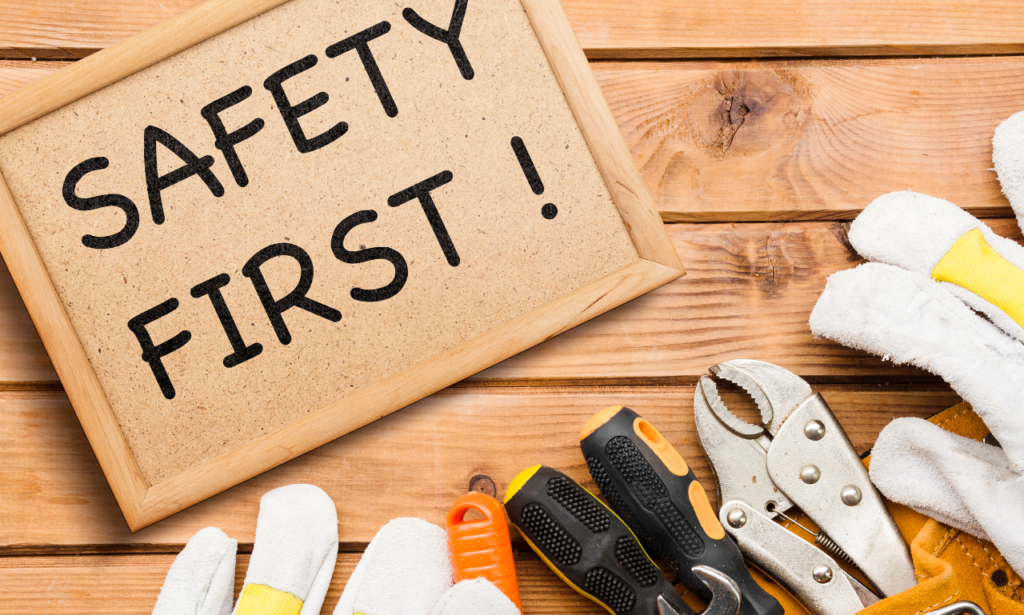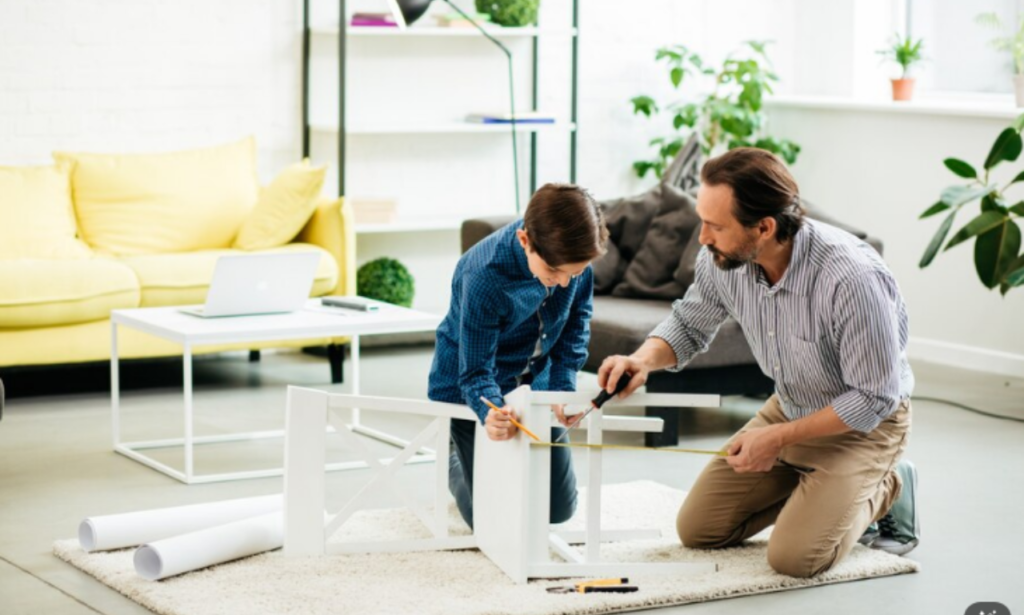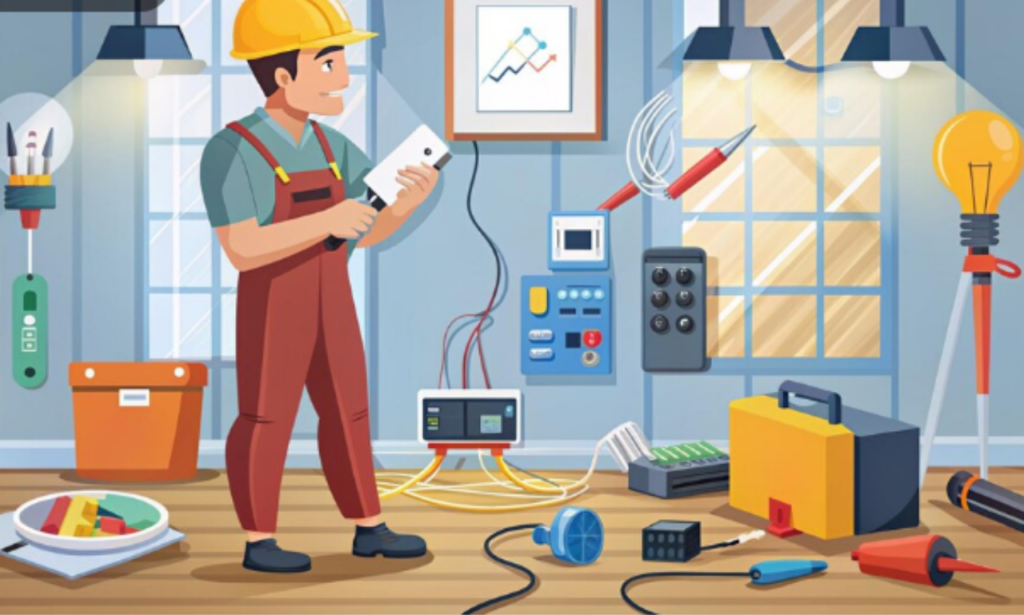Your home should be a sanctuary where you feel safe and secure. But keeping it that way requires regular home maintenance. With a focus on safety, you can prevent accidents, reduce risks, and ensure that your home remains a haven for you and your loved ones.
In this guide, we’ll cover essential home maintenance tips for safety. From electrical checks to fire safety and everything in between, these tips will help you maintain a safe living environment.
- Why Home Maintenance for Safety Is Crucial
- 1. Electrical Safety Maintenance
- 2. Fire Safety Tips
- 3. Security Systems and Alarms
- 4. Plumbing Safety
- 5. Structural Safety Checks
- 6. Indoor Air Quality and Ventilation
- 7. Child and Pet Safety in the Home
- 8. Outdoor Safety Maintenance
- 9. Creating a Home Safety Checklist
- 10. Final Thoughts on Home Maintenance for Safety
Why Home Maintenance for Safety Is Crucial
Keeping up with home maintenance isn’t just about preserving the aesthetic appeal of your house. It’s also about protecting your investment, your health, and, most importantly, the well-being of your family. Neglecting maintenance can lead to serious safety hazards like fire risks, electrical problems, and even structural failures.
Understanding Common Home Safety Hazards
Before diving into the tips, it’s essential to understand the most common safety hazards in homes:
- Faulty wiring that could lead to electrical fires
- Unsecured furniture that might tip over
- Blocked ventilation leads to poor indoor air quality
- Old smoke detectors that don’t work effectively
By addressing these and other hazards, you can create a safer environment.
1. Electrical Safety Maintenance
Inspect and Replace Faulty Wiring
Electrical safety is a top priority in any home. Faulty wiring can cause electrical fires, shocks, or even electrocution. Regularly inspect the wiring throughout your home, especially in older houses.
- Check for frayed wires or any signs of wear and tear. If you find anything suspicious, it’s essential to replace the wiring immediately.
- Use a circuit tester to ensure your outlets are grounded correctly.
- Consider hiring a professional electrician for an in-depth inspection if you’re uncomfortable doing this yourself.
Test and Maintain Smoke and Carbon Monoxide Detectors
Your smoke and carbon monoxide detectors are your first line of defense against fires and toxic gas leaks.
- Test detectors monthly to ensure they’re working correctly.
- Replace the batteries at least once a year.
- Install carbon monoxide detectors on every level of your home and near sleeping areas.
2. Fire Safety Tips
Fire Extinguisher Maintenance and Placement
A fire extinguisher is a must-have in every home. But simply having one isn’t enough—you need to maintain it and know how to use it.
- Place extinguishers in easily accessible areas, like the kitchen and garage.
- Check the pressure gauge monthly to ensure it’s in the green zone.
- Replace your fire extinguisher every 5 to 15 years, depending on the manufacturer’s recommendation.
Safe Storage of Flammable Materials
Storing flammable materials properly is crucial to prevent accidental fires.
- Keep flammable liquids like gasoline and paint thinners in well-ventilated areas, away from heat sources.
- Store them in approved containers and out of reach of children.
Create and Practice a Fire Escape Plan
Every home should have a fire escape plan. Knowing what to do in the event of a fire can save lives.
- Create a map of your home, marking all exits and escape routes.
- Designate a meeting spot outside your home where everyone can gather after escaping.
- Practice the plan at least twice a year, including nighttime drills.
3. Security Systems and Alarms
Home Security System Maintenance
A well-maintained home security system deters intruders and provides peace of mind.
- Test your security system monthly to ensure all sensors and alarms are functioning correctly.
- Replace any batteries in wireless systems as needed.
- Update your security system with the latest technology, such as smart home integration.
Ensure Proper Lighting Around Entry Points
Proper lighting around your home’s entry points is a simple yet effective way to deter potential burglars.
- Install motion-sensor lights at all entry points.
- Regularly check the lights to ensure they’re working and replace bulbs as necessary.
- Consider adding smart lighting that you can control remotely.
4. Plumbing Safety
Prevent Water Leaks and Mold
Water leaks can lead to mold growth, which poses serious health risks. Regular maintenance can help you avoid these issues.
- Inspect pipes for any signs of leaks or corrosion.
- Ensure that caulking around sinks, tubs, and showers is intact to prevent water seepage.
- Install a water leak detector to alert you of any leaks in hard-to-see areas.
Install Anti-Scald Devices in Showers and Sinks
Anti-scald devices can prevent burns, especially if you have children or elderly family members.
- Install anti-scald valves in showers and sinks to regulate water temperature.
- Regularly test the water temperature to ensure it stays below 120°F (49°C).
Maintain Water Heater Safety Features
Your water heater should have safety features like a pressure relief valve to prevent overheating or explosions.
- Test the pressure relief valve annually by lifting the lever and allowing it to snap back. If water flows out, the valve is working correctly.
- Consider setting the thermostat to 120°F to prevent scalding and save energy.
5. Structural Safety Checks
Inspect Roofs and Gutters for Damage
Your roof and gutters are critical in protecting your home from water damage and other issues.
- Inspect your roof twice a year for any signs of damage, such as missing shingles or leaks.
- Clean your gutters regularly to prevent blockages that could cause water to back up and damage your roof or foundation.
- If you notice any issues, consider hiring a professional roofer for repairs.
Check Foundations for Cracks or Instability
A stable foundation is essential for the safety of your home.
- Regularly inspect your foundation for any cracks or signs of settling.
- If you find cracks wider than 1/4 inch, it’s time to call in a professional.
- Keep water away from your foundation by ensuring proper drainage and sloping the ground away from your home.
Ensure Windows and Doors Are Secure
Windows and doors are common entry points for intruders, so they must be secure.
- Inspect locks on all windows and doors and replace any that are broken or outdated.
- Consider installing deadbolts on exterior doors for added security.
- Check for drafts around windows and doors, and seal them to improve energy efficiency and security.
Maintain Stairs and Railings for Safety
Falls are a leading cause of home injuries, especially on stairs.
- Regularly inspect staircases for loose or damaged steps.
- Ensure that railings are secure and can support weight.
- Consider installing non-slip treads on stairs to prevent slipping, particularly if they are wood or tile.
6. Indoor Air Quality and Ventilation
Clean and Replace HVAC Filters
Good indoor air quality is crucial for your health, and your HVAC system plays a significant role in maintaining it.
- Replace HVAC filters every 1-3 months, depending on the type of filter and the season.
- Schedule a professional HVAC inspection annually to ensure your system is running efficiently.
Check Ventilation in Bathrooms and Kitchens
Proper ventilation in moisture-prone areas like bathrooms and kitchens prevents mold growth and maintains air quality.
- Check exhaust fans to ensure they’re functioning correctly.
- Clean vents and ducts regularly to prevent blockages and ensure good airflow.
Radon Testing and Mitigation
Radon is a colorless, odorless gas that can pose serious health risks if it accumulates in your home.
- Test your home for radon using a radon test kit, available at most hardware stores.
- If radon levels are high, consider installing a radon mitigation system.
Preventing and Managing Mold Growth
Mold can grow in damp areas and cause health issues, especially for those with allergies or asthma.
- Keep humidity levels low, ideally between 30-50%, using dehumidifiers if necessary.
- Clean any mold you find with appropriate cleaning products and take steps to prevent future growth by fixing leaks and improving ventilation.
7. Child and Pet Safety in the Home
Installing Safety Gates and Childproof Locks
If you have children or pets, childproofing your home is essential for their safety.
- Install safety gates at the top and bottom of stairs.
- Use childproof locks on cabinets containing dangerous items, such as cleaning supplies or medications.
Securing Heavy Furniture and Appliances
Heavy furniture and appliances can tip over, causing serious injuries.
- Anchor furniture like bookshelves, dressers, and TVs to the wall using brackets or straps.
- Avoid placing heavy items on top of furniture where they could fall.
Safe Storage of Cleaning Supplies and Medications
Cleaning supplies and medications should be stored safely to prevent accidental poisoning.
- Keep these items out of reach of children and pets, ideally in locked cabinets.
- Label everything clearly to avoid confusion and store items in their original containers.
Checking for and Removing Choking Hazards
Choking hazards can be found throughout the home, particularly if you have young children.
- Regularly scan your home for small items that could pose a choking risk, such as coins, buttons, or small toys.
- Keep these items out of reach and ensure toys are age-appropriate.
8. Outdoor Safety Maintenance
Ensuring Proper Lighting in Walkways and Entry Points
Good outdoor lighting enhances both safety and security.
- Install pathway lighting to illuminate walkways, driveways, and entrances.
- Regularly check outdoor lights to ensure they’re working correctly and replace bulbs as needed.
Maintaining Decks and Patios for Structural Safety
Outdoor living spaces like decks and patios should be well-maintained to prevent accidents.
- Inspect decks for loose or rotting boards and secure any loose railings.
- Clean and seal wood decks annually to protect them from the elements.
- Ensure that patio stones or tiles are level and free from cracks to prevent tripping.
Regular Inspection of Outdoor Play Equipment
If you have outdoor play equipment for children, regular inspections are a must.
- Check for loose bolts, splintered wood, or rusted metal parts.
- Ensure that play equipment is properly anchored to the ground.
- Remove any hazards like sharp edges or protruding nails.
Keeping Driveways and Walkways Clear of Ice and Debris
During the winter months, icy driveways and walkways can lead to dangerous slips and falls.
- Shovel snow and apply ice melt to walkways, driveways, and steps.
- Regularly clear debris like leaves or branches to prevent slipping during other seasons.
9. Creating a Home Safety Checklist
Develop a Personalized Home Safety Maintenance Checklist
A home safety checklist helps you stay on top of regular maintenance tasks and ensures nothing is overlooked.
- List out tasks by frequency—monthly, seasonally, and annually.
- Include tasks like testing smoke detectors, inspecting wiring, and checking locks.
- Use this checklist to stay organized and ensure your home remains safe throughout the year.
Involve the Whole Family in Safety Maintenance
Maintaining a safe home is a team effort. Involve everyone in the family in home safety tasks.
- Assign age-appropriate tasks to each family member.
- Use family meetings to discuss safety concerns and review the emergency plan.
10. Final Thoughts on Home Maintenance for Safety
Regular home maintenance is the key to a safe and secure home. By following these home maintenance tips for safety, you can reduce risks, prevent accidents, and protect your home and loved ones. Whether it’s electrical safety, fire prevention, or structural checks, staying proactive about maintenance ensures peace of mind and a safer living environment.
Don’t wait until something goes wrong—take action today to maintain the safety of your home. And remember, when it comes to safety, investing in quality home maintenance products and professional services is always worth it.
For more detailed guides and expert advice, check out our recommended resources to keep your home safe and well-maintained. Your family’s safety is priceless—make it your top priority.
- Life Style Cool Shit Project: Redefine Your Space at LifeStyledCo - January 6, 2025
- Picuki: Your Gateway to Accessing Instagram’s Exclusive Content - December 31, 2024
- 5 Attractive Places to Visit in Abha, Saudi Arabia - December 18, 2024



